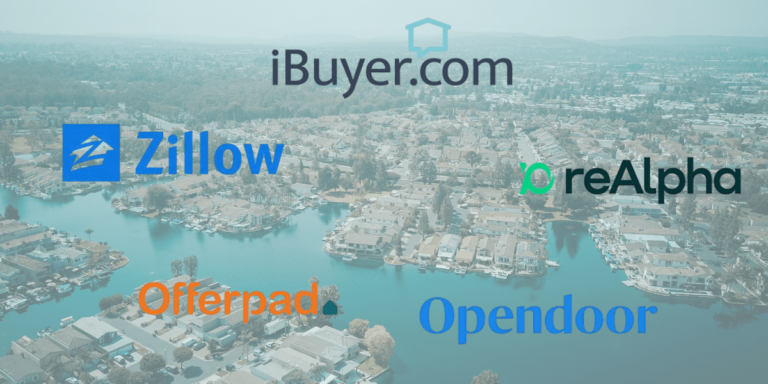“Owner’s vs. Lender’s Title Insurance: What’s the Difference and Do You Need Both?” This article clarifies that lender’s title insurance protects the lender and is mandatory for financed homes, while owner’s title insurance safeguards the homeowner’s equity and is highly recommended. Owner’s coverage protects against issues like undisclosed liens or forged documents, covering legal fees and potential loss of property, which lender’s insurance does not. Both are crucial for comprehensive protection in a home purchase.
Table of Contents
ToggleWhat Is Title Insurance, and Why Is It Necessary?
The “title” to a home is your legal ownership of it. Before any property changes hands, a title company performs a title search to uncover any issues—called “clouds”—that might interfere with ownership.
Common issues include:
- Errors in public records
- Undiscovered liens (like unpaid taxes or contractor bills)
- Forged documents
- Unknown heirs with claims on the property
- Boundary disputes or easement issues
Title insurance protects against financial losses and legal costs related to these problems that might not appear until after closing.
Understanding the Two Types of Title Insurance
Let’s break down lender’s and owner’s title insurance:
Lender’s Title Insurance
- Who it protects: The mortgage lender
- Coverage: Covers the loan amount (not your investment)
- Required?: Yes, for financed purchases
- Cost: Typically bundled in closing costs
Owner’s Title Insurance
- Who it protects: You, the homeowner
- Coverage: Covers your equity—up to the full purchase price
- Required?: No, but highly recommended
- Cost: One-time premium paid at closing
In short: The lender wants protection for their financial interest. You should want the same for yours.
Why Lender’s Title Insurance Isn’t Enough
It’s a common misconception that if your lender has title insurance, you’re covered too.
Let’s compare:
| Scenario | Lender’s Insurance | Owner’s Insurance |
| Fraudulent transfer of deed | ✅ | ✅ |
| Undisclosed prior liens | ✅ | ✅ |
| Ownership claim by unknown heir | ✅ | ✅ |
| Your legal expenses to defend | ❌ | ✅ |
| Loss of your down payment | ❌ | ✅ |
| Equity loss due to title defect | ❌ | ✅ |
Without owner’s title insurance, you’ll pay your own legal bills and may lose your equity—or even your home.
Real-World Example: A Costly Mistake
Imagine buying a $400,000 home. Two years after moving in, a contractor sues, claiming the previous owner failed to pay a $20,000 remodeling bill. The court upholds the lien.
- Lender’s title insurance covers the lender’s interest.
- You’re liable for the $20,000 because you didn’t have owner’s coverage.
With an owner’s policy, the title company would’ve either paid the lien or defended you in court—at no cost to you.
How Much Does Title Insurance Cost?
Owner’s Title Insurance
- Based on the home’s purchase price
- Typically ranges from $800 to $2,000
- One-time payment—lasts as long as you own the property
- Some states offer bundle discounts if bought with lender’s policy
Lender’s Title Insurance
- Based on the loan amount, not the home price
- Usually ranges between $500 and $1,500
- Required for all financed purchases
- Paid once, part of closing costs
Tip: In many cases, the cost of both policies is less than 1% of the home’s price.
What Does Title Insurance Cover?
Here’s a simple breakdown:
| Covered Event | Lender’s Policy | Owner’s Policy |
| Unknown liens or judgments | ✅ | ✅ |
| Forged documents or signatures | ✅ | ✅ |
| Errors in public records | ✅ | ✅ |
| Missing heirs or estate disputes | ✅ | ✅ |
| Boundary or survey issues | ❌ | ✅ |
| Legal defense costs | ❌ | ✅ |
| Loss of property ownership or equity | ❌ | ✅ |
Should You Buy Both?
Yes, and here’s why:
- Lenders always protect their investment—you should protect yours.
- Your policy protects against costly legal disputes, even years later.
- You’re making a significant financial commitment—why leave it vulnerable?
- The cost of a policy is small compared to what’s at risk (equity, legal fees, home ownership).
What Title Insurance Doesn’t Cover
While title insurance offers strong protection, it doesn’t cover everything. It won’t pay for:
- Issues created after closing (new liens, zoning violations, etc.)
- Property damage or maintenance
- Future disputes with neighbors or HOA
- Environmental hazards
It’s designed to protect against the past, not future actions or negligence.
FAQs
I’m paying cash. Do I still need title insurance?
Yes! Even without a lender, you still face risks. An owner’s policy protects your full investment.
What if I’m buying new construction?
Even new homes can have title problems—like unpaid subcontractors or disputes over land boundaries.
Can I buy an owner’s policy later?
Yes, but it’s best (and cheaper) to buy during closing. Coverage begins immediately and protects you from day one.
Conclusion
Title issues can take years to emerge, but when they do, they can derail your financial future. While lender’s insurance is mandatory, owner’s insurance is your choice—and it’s a smart one.
For a one-time cost at closing, you get lifelong protection. You wouldn’t buy a car without insurance—why risk your home?
Final Takeaways:
- Lender’s title insurance protects the bank.
- Owner’s title insurance protects you.
- Title issues are rare—but costly when they arise.
A single policy can save you tens of thousands later.



